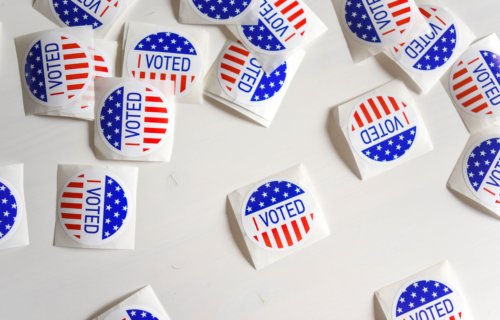CATONSVILLE, Md. — Election season is in full swing and that means the name of the game is reaching as many voters as possible. So what exactly is the best way to engage with the voting pubic? An interesting new study finds the answer to that question depends on the type of voter.
Researchers from the University of Maryland and Harvard say that more modern, mass media-centric campaigning tactics like TV ads do a good job of reaching undecided voters. However, grassroots election tactics like going door-to-door, calling homes, and handing out lawn signs are more effective at reaching and energizing a candidate’s core group of supporters.
“We decided to study the effects of multichannel marketing in the context of the U.S. presidential elections to determine which approaches are not only more powerful in political applications, but also to see what we can learn and apply across other applications of multichannel marketing,” says study co-author Lingling Zhang from the University of Maryland in a media release.
Election Day strategies: Ground game vs. air war
The research team analyzed multichannel marketing strategies used during U.S. presidential elections between 2004 and 2012. They looked to see if any specific approaches predicted election victory.
“With more technologies to better target individual voters, the question of how different campaign activities work in different voter segments presented itself to us as increasingly important,” Zhang explains. “As a result, we saw an opportunity to compare the ‘air war’ and the ‘ground game’ of campaigns to gauge effectiveness.”
“Air war” in this context refers to mass media outreach ideas like TV commercials. “Ground game” means more traditional, grass roots campaign ideas.
With these findings in mind, researchers recommend using the “ground game” to energize pre-existing supporters and ensure they show up to vote come Election Day. “Air war” tactics on the other hand can help undecided voters see a candidate in a more favorable light.
“While field campaigning tends to specifically focus on turnout of those whose minds are made up, television advertising, which is less targeted but more informational in nature, tends to be better received by those who are undecided and could still change their minds,” adds Doug J. Chung of Harvard University.
The study is published in Marketing Science.
